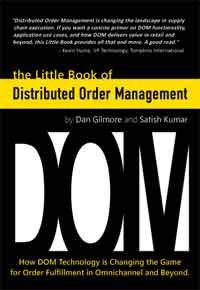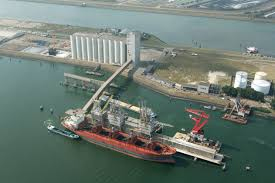Ukraine, the Economy and the Supply Chain Week 3
I am still mentally caught up in the Russian invasion of Ukraine and its impact on the economy and supply chain in the near and longer term, so I am back here with a third look.
The amazing thing this week is how the impact of the Ukraine conflict is intersecting with already power trends around inflation and supply chain disruptions.
| GILMORE SAYS: |
WHAT DO YOU SAY?'
As the Axios web site put it this week, "Besides inflicting suffering on the people of Ukraine, Russia's invasion will also spread misery worldwide.
Send us your
Feedback here
|
Oil prices in terms of the global Brent Crude benchmark rose to about $130 per barrel earlier in the week, versus $98 at the start of the war, but then pulled back to about $109 per barrel at end of trading day Thursday.
The key question: where are they headed from here? And that depends on whether countries stop buying Russian oil, as the US is doing, and/or Russia cuts back its own oil exports to Europe to inflict some pain and send the price it receive per barrel even higher.
Earlier this week, an analyst from Rystad Energy's head of oil markets said if Russian oil exports are significantly reduced as noted above, the price per barrel could spike to as high as $240 per barrel this summer.
Let's hope he's wrong, as this would cause economic disaster. Of course, $130 per barrel already may be plenty enough to cause economic disaster.
Case in point: the national average for a gallon of gasoline surpassed $4.35 on Thursday, with California is leading the way with the highest state average of $5.67 per gallon.
Meanwhile, last week the average on the road price for a gallon of diesel fuel rose 74.5 cents, according to the weekly report from the Energy Information Administration. That is an all-time high jump for a single week.
Economist Rajeev Dhawan, the director of the Economic Forecasting Center at Georgia State University in Atlanta, told Transport Topics magazine that carriers "can handle $4 a gallon [for diesel], but if it goes to $5 a gallon, the business model for trucking companies and others - it won't work."
And of course rising trucking costs will impact the cost of about everything, either pushing existing inflation even higher, triggering a recession in the US - or both.
The Consumer Price Index rose an incredible 7.9% year over year in February, a four-decade high increase in a month, as reported by the Labor Department Thursday. It is the fifth straight month of inflation at 6% or higher. This is a disastrous development for the economy - and higher oil prices will stoke further inflation.
It may already be changing consumer behavior. Volumes at meat packing plants in the US are way down, suggesting consumers are already cutting down on expensive beef, as soaring gas prices reduce discretionary income.
The rise in food costs is of course a global phenomenon.
"The conflict in Ukraine is threatening global grain production, the supply of edible oils and fertilizer exports, sending basic commodity prices rocketing and mirroring the crisis in energy markets," Reuters reported this week.
As a result, a growing list of key producing countries is seeking to keep vital food supplies within their borders, banning or reducing how much can be exported. This will also push food prices still higher.
 Russia and Ukraine are important suppliers of edible oils as well as contributing nearly 30% of global wheat exports. Russia and Ukraine are important suppliers of edible oils as well as contributing nearly 30% of global wheat exports.
Chicago wheat futures have climbed around 60% so far this year, pushing up the costs of key food staples such as bread. That would include sharp price hikes in some of the world's poorest and least stable countries, potentially igniting social unrest.
As the Axios web site put it this week, "Besides inflicting suffering on the people of Ukraine, Russia's invasion will also spread misery worldwide.
Earlier this week, the price of nickel on London Metal Exchange briefly jumped to a record high above $100,000 a metric ton, before falling back a bit. Still, the price nearly doubled.
Russia is the world's third-largest producer of nickel, a key ingredient in stainless steel and a major component in lithium-I on batteries. The price copper and other metals are also soaring, driving up the costs of many types of products to appliances.
A growing mass of companies, from Nike to John Deere to McDonald's and dozens of others are - for now at least - stopping sales and/or production in Russia. The absence of popular Western products will be quite a blow to young professionals in Moscow.
On the war itself, a research note from the global analysts at Bank of America warned that "there is no clear off-ramp for Russia" in the Ukraine conflict - meaning a way to stop the aggression without looking like it lost and stopping short of further aggression in eastern Europe and NATO countries.
The note added that trying to estimate the economic impact following Russia's invasion has been like "catching a falling knife."
There is a lot more, but think that is it for this week. I sure hope I am on a different topic next week.
And as I said previously, it now seems clear that a return to somewhat normal times after two years of pandemic-driven supply chain disruptions, wild price swings and more is now unlkely any time soon, prolonging these strange supply chain times for who knows how long.
Any reaction to Gilmore's comments? Have any of your own? Let us know your thoughts at the Feedback button (email) or section below
|







 Russia and Ukraine are important suppliers of edible oils as well as contributing nearly 30% of global wheat exports.
Russia and Ukraine are important suppliers of edible oils as well as contributing nearly 30% of global wheat exports.


